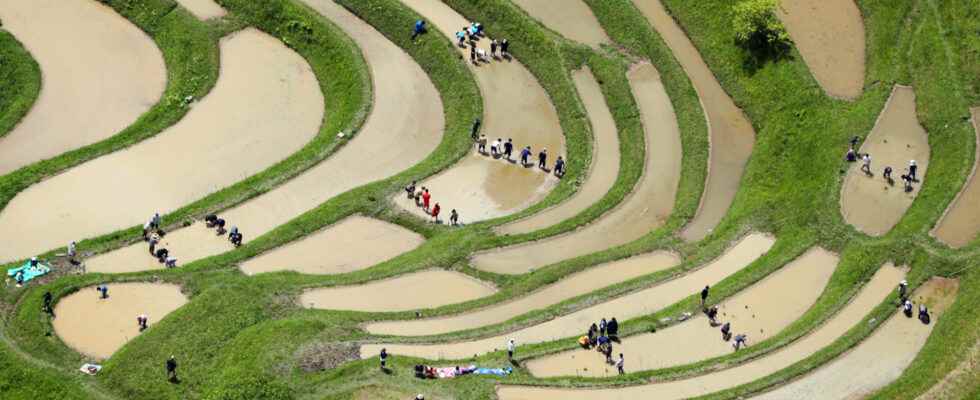Bernard Delattre (in Tokyo), edited by Gauthier Delomez
modified to
07:14, October 26, 2022
Eight months after the start of the war in Ukraine, the Japanese press takes stock of a conflict “which upsets the face of the Japanese countryside”. Thousands of hectares of rice fields have been converted in the archipelago thanks to a world price of cereals which has soared recently, especially that of wheat.
The repercussions of the war in Ukraine are numerous all over the world, starting with food. With the destruction of wheat fields, many in the country, a food crisis was feared by observers before the first boats began to leave the country’s ports. In Japan, this conflict is changing cultural habits. The Japanese nationalist daily Sankei is sorry for a conflict “which upsets the face of the Japanese countryside”. Indeed, according to the account of the Jiji press agency, “since the start of hostilities, several thousand hectares of rice fields have been converted” in the archipelago.
Grants for changing careers
The financial daily Nikkei advances an explanation: “The world price of these cereals has soared since Ukraine, because of the war, ceased to be ‘Europe’s granary’. Such a conversion, therefore, it’s all good for Japanese rice farmers.” Rice farmers who “even receive subsidies to change jobs”, adds the daily asahi.
The Japanese consume half as much rice as in the 1960s, but the country still produces as much. This is why the price of this cereal is falling, and rice farmers are becoming poorer. The government therefore encourages them to turn to more profitable crops, such as the cultivation of wheat.
